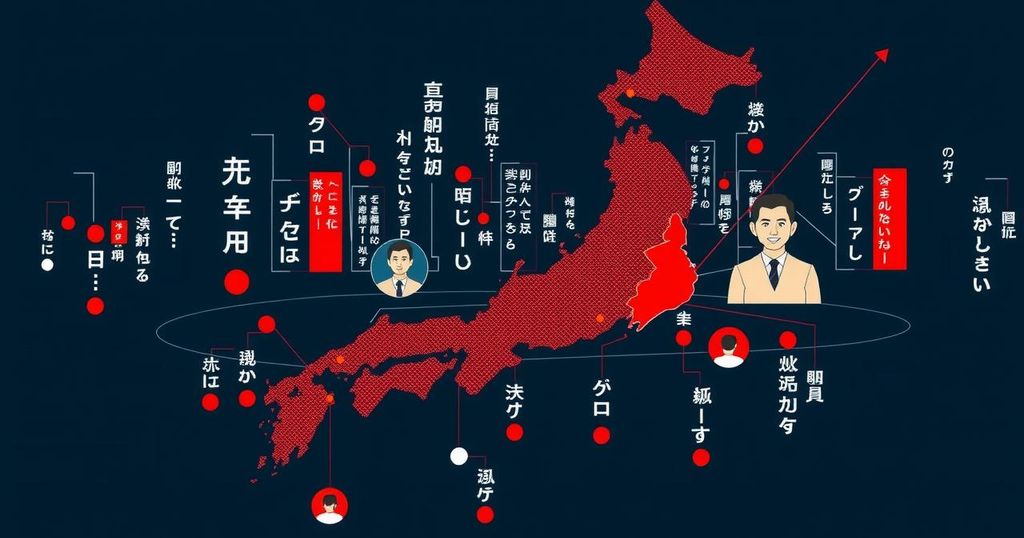Dissatisfaction with Democracy Waxes as Japan Prepares for Snap Election

As Japan approaches its snap election scheduled for October 27, 2024, a Pew Research Center survey indicates significant dissatisfaction with democracy among its citizens, with only 30% viewing the ruling Liberal Democratic Party favorably. The LDP’s long-standing hold on governance is challenged by public discontent, underscored by a majority of respondents feeling no allegiance to any party and only a third satisfied with democratic processes. This political landscape may critically influence the upcoming election outcomes.
Japan is currently experiencing widespread dissatisfaction with its democracy as it approaches a snap election set for October 27, 2024. Prime Minister Shigeru Ishiba, who recently ascended to power, has called this election with the intent of securing a public vote of confidence for his administration amid ongoing scandals affecting his party, the Liberal Democratic Party (LDP). A Pew Research Center survey, conducted via phone from January 5 to March 9, 2024, indicates that public opinion towards the LDP has significantly soured, with only 30% of respondents expressing a favorable view, while a striking 68% reported an unfavorable stance. This decline marks the lowest favorability rating recorded by the LDP in seven years of polling. Furthermore, the survey reveals that a substantial 56% of Japanese adults indicate they do not feel close to any political party, a figure notably higher than that of citizens in other democracies. Additionally, voting enthusiasm appears to be waning, with only approximately one-third of adults expressing satisfaction with the current state of democracy in Japan, a downturn since 2019. Despite these trends, support for the LDP remains higher than for its opposition, such as the Constitutional Democratic Party (CDP), which has a favorability rating of just 29%. The political landscape in Japan illustrates a unique stability, given that the LDP has controlled the government for 65 of the last 69 years since its establishment in 1955, often in coalition with other parties, including a long-standing partnership with the Komeito party.
The current political climate in Japan reflects a growing disillusionment with the nation’s democratic framework, particularly regarding the long-standing dominance of the LDP. The party’s history reveals an unparalleled tenure in governance, having occupied leadership roles for nearly seven decades. This contrasts sharply with trends seen in other developed democracies within the OECD, where no single party has maintained power for such a duration. Recent events, including scandals involving LDP legislators, have eroded public confidence in the party and democracy itself. The Pew Research Center’s analysis of the Japanese public’s attitudes offers valuable insights into the prevailing sentiments regarding party loyalty, political satisfaction, and voter engagement, highlighting significant discontent as the nation prepares for the upcoming election.
In summary, Japan is at a crossroads as it nears a crucial snap election against a backdrop of declining public trust in democracy and its political parties. The LDP, despite its historical dominance, faces unprecedented unpopularity, with a substantial portion of the populace expressing detachment from all political affiliations. The forthcoming election may serve as a critical juncture for Japan’s democratic health, as the electorate seeks to voice their discontent through the ballot box. As reflected in the Pew Research Center’s findings, the electorate appears increasingly polarized, with only limited enthusiasm for the country’s traditional political structures.
Original Source: www.pewresearch.org








